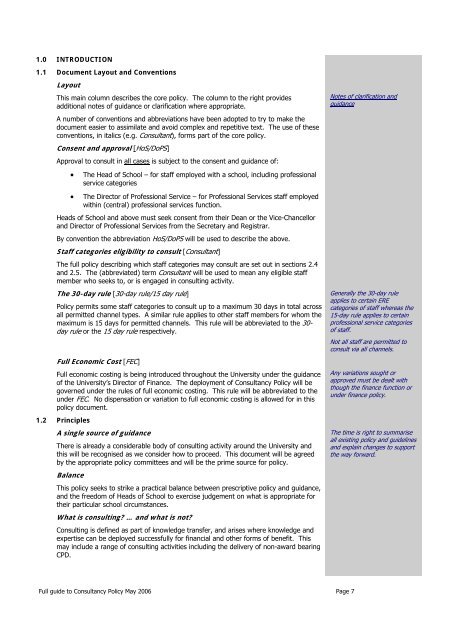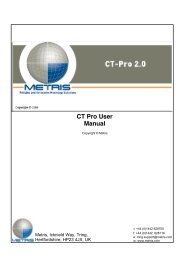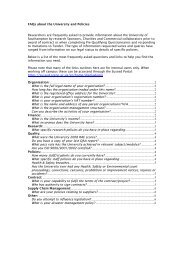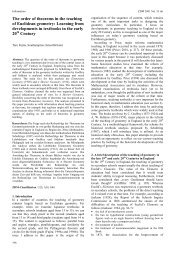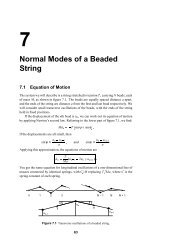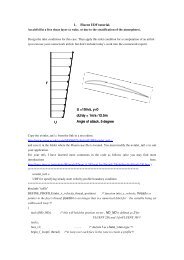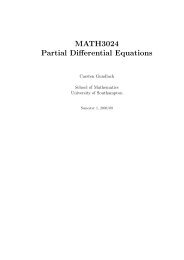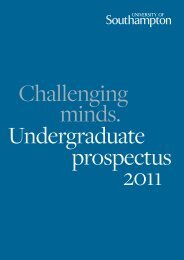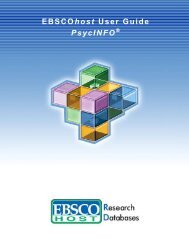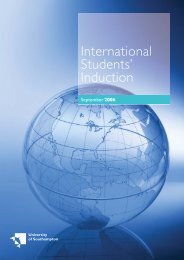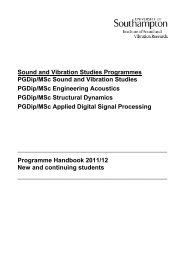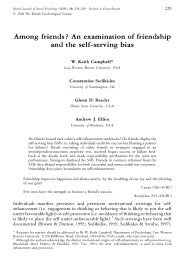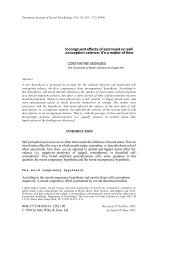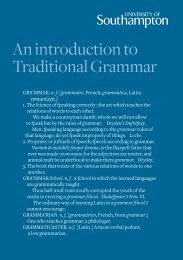Full guide to Consultancy Policy May 2006 Page 1 - University of ...
Full guide to Consultancy Policy May 2006 Page 1 - University of ...
Full guide to Consultancy Policy May 2006 Page 1 - University of ...
You also want an ePaper? Increase the reach of your titles
YUMPU automatically turns print PDFs into web optimized ePapers that Google loves.
1.0 INTRODUCTION<br />
1.1 Document Layout and Conventions<br />
Layout<br />
This main column describes the core policy. The column <strong>to</strong> the right provides<br />
additional notes <strong>of</strong> guidance or clarification where appropriate.<br />
A number <strong>of</strong> conventions and abbreviations have been adopted <strong>to</strong> try <strong>to</strong> make the<br />
document easier <strong>to</strong> assimilate and avoid complex and repetitive text. The use <strong>of</strong> these<br />
conventions, in italics (e.g. Consultant), forms part <strong>of</strong> the core policy.<br />
Consent and approval [HoS/DoPS]<br />
Approval <strong>to</strong> consult in all cases is subject <strong>to</strong> the consent and guidance <strong>of</strong>:<br />
Notes <strong>of</strong> clarification and<br />
guidance<br />
• The Head <strong>of</strong> School – for staff employed with a school, including pr<strong>of</strong>essional<br />
service categories<br />
• The Direc<strong>to</strong>r <strong>of</strong> Pr<strong>of</strong>essional Service – for Pr<strong>of</strong>essional Services staff employed<br />
within (central) pr<strong>of</strong>essional services function.<br />
Heads <strong>of</strong> School and above must seek consent from their Dean or the Vice-Chancellor<br />
and Direc<strong>to</strong>r <strong>of</strong> Pr<strong>of</strong>essional Services from the Secretary and Registrar.<br />
By convention the abbreviation HoS/DoPS will be used <strong>to</strong> describe the above.<br />
Staff categories eligibility <strong>to</strong> consult [Consultant]<br />
The full policy describing which staff categories may consult are set out in sections 2.4<br />
and 2.5. The (abbreviated) term Consultant will be used <strong>to</strong> mean any eligible staff<br />
member who seeks <strong>to</strong>, or is engaged in consulting activity.<br />
The 30-day rule [30-day rule/15 day rule]<br />
<strong>Policy</strong> permits some staff categories <strong>to</strong> consult up <strong>to</strong> a maximum 30 days in <strong>to</strong>tal across<br />
all permitted channel types. A similar rule applies <strong>to</strong> other staff members for whom the<br />
maximum is 15 days for permitted channels. This rule will be abbreviated <strong>to</strong> the 30-<br />
day rule or the 15 day rule respectively.<br />
<strong>Full</strong> Economic Cost [FEC]<br />
<strong>Full</strong> economic costing is being introduced throughout the <strong>University</strong> under the guidance<br />
<strong>of</strong> the <strong>University</strong>’s Direc<strong>to</strong>r <strong>of</strong> Finance. The deployment <strong>of</strong> <strong>Consultancy</strong> <strong>Policy</strong> will be<br />
governed under the rules <strong>of</strong> full economic costing. This rule will be abbreviated <strong>to</strong> the<br />
under FEC. No dispensation or variation <strong>to</strong> full economic costing is allowed for in this<br />
policy document.<br />
1.2 Principles<br />
A single source <strong>of</strong> guidance<br />
There is already a considerable body <strong>of</strong> consulting activity around the <strong>University</strong> and<br />
this will be recognised as we consider how <strong>to</strong> proceed. This document will be agreed<br />
by the appropriate policy committees and will be the prime source for policy.<br />
Balance<br />
This policy seeks <strong>to</strong> strike a practical balance between prescriptive policy and guidance,<br />
and the freedom <strong>of</strong> Heads <strong>of</strong> School <strong>to</strong> exercise judgement on what is appropriate for<br />
their particular school circumstances.<br />
What is consulting? … and what is not?<br />
Consulting is defined as part <strong>of</strong> knowledge transfer, and arises where knowledge and<br />
expertise can be deployed successfully for financial and other forms <strong>of</strong> benefit. This<br />
may include a range <strong>of</strong> consulting activities including the delivery <strong>of</strong> non-award bearing<br />
CPD.<br />
Generally the 30-day rule<br />
applies <strong>to</strong> certain ERE<br />
categories <strong>of</strong> staff whereas the<br />
15-day rule applies <strong>to</strong> certain<br />
pr<strong>of</strong>essional service categories<br />
<strong>of</strong> staff.<br />
Not all staff are permitted <strong>to</strong><br />
consul t via all channels.<br />
Any variations sought or<br />
approved mus t be deal t with<br />
though the finance function or<br />
under finance policy.<br />
The time is right <strong>to</strong> summarise<br />
all existing policy and <strong>guide</strong>lines<br />
and explain changes <strong>to</strong> support<br />
the way forward.<br />
<strong>Full</strong> <strong>guide</strong> <strong>to</strong> <strong>Consultancy</strong> <strong>Policy</strong> <strong>May</strong> <strong>2006</strong> <strong>Page</strong> 7


